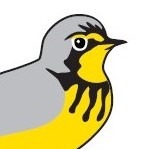
Western Sandpiper Photo: Glenn Bartley
Bird Studies Canada is taking action to preserve one of Canada’s most important – and most threatened – places for biodiversity. A new initiative will engage with local communities in conserving British Columbia’s Fraser River Estuary Important Bird and Biodiversity Area (IBA). Much is already being done by conservation-oriented groups and agencies in this region, and with this project, Bird Studies Canada aims to support those efforts and help get more done. The project will be led by James Casey, who joined the Bird Studies Canada team this month.
The Fraser River Estuary IBA is one of Canada’s richest and most important ecosystems for migrant and wintering waterbirds. Spanning over 750 square kilometres near Metro Vancouver, this area is a complex system of marine, estuarine, freshwater, and agricultural habitats. Its varied landscapes support globally or continentally significant numbers of more than 15 waterbird species, including the Western Sandpiper, Red-necked Grebe, and Thayer’s Gull. It also hosts Barn Owls and Peregrine Falcons in nationally significant numbers.
Unfortunately, this site has been identified as an ‘IBA in Danger’ by BirdLife International. It overlaps with Canada’s third-largest urban centre, and one of the largest ports on North America’s west coast. As such, the IBA and its wildlife are subject to combined pressures from residential, commercial, and industrial development, related transportation and infrastructure developments, pollution, and widespread recreational disturbance.
James Casey (jcasey@birdscanada.org) comes to Bird Studies Canada with experience in project development and planning, outreach and advocacy, and working with governments, industry, and community groups, particularly in freshwater and coastal systems of B.C. This month, he began to engage with the people of the Fraser delta in support of efforts to build a movement that will secure conservation solutions for the Fraser River Estuary IBA – an important step toward ensuring that the birds relying on this special place continue to survive and thrive.
“Estuaries are places where water, society, and nature are intertwined,” says James. “I am very excited to be working with a science-based conservation organization on finding solutions that enable harmony in those interactions.”
This project is made possible by generous funding from The Gosling Foundation, in partnership with Bird Studies Canada and Nature Canada.

